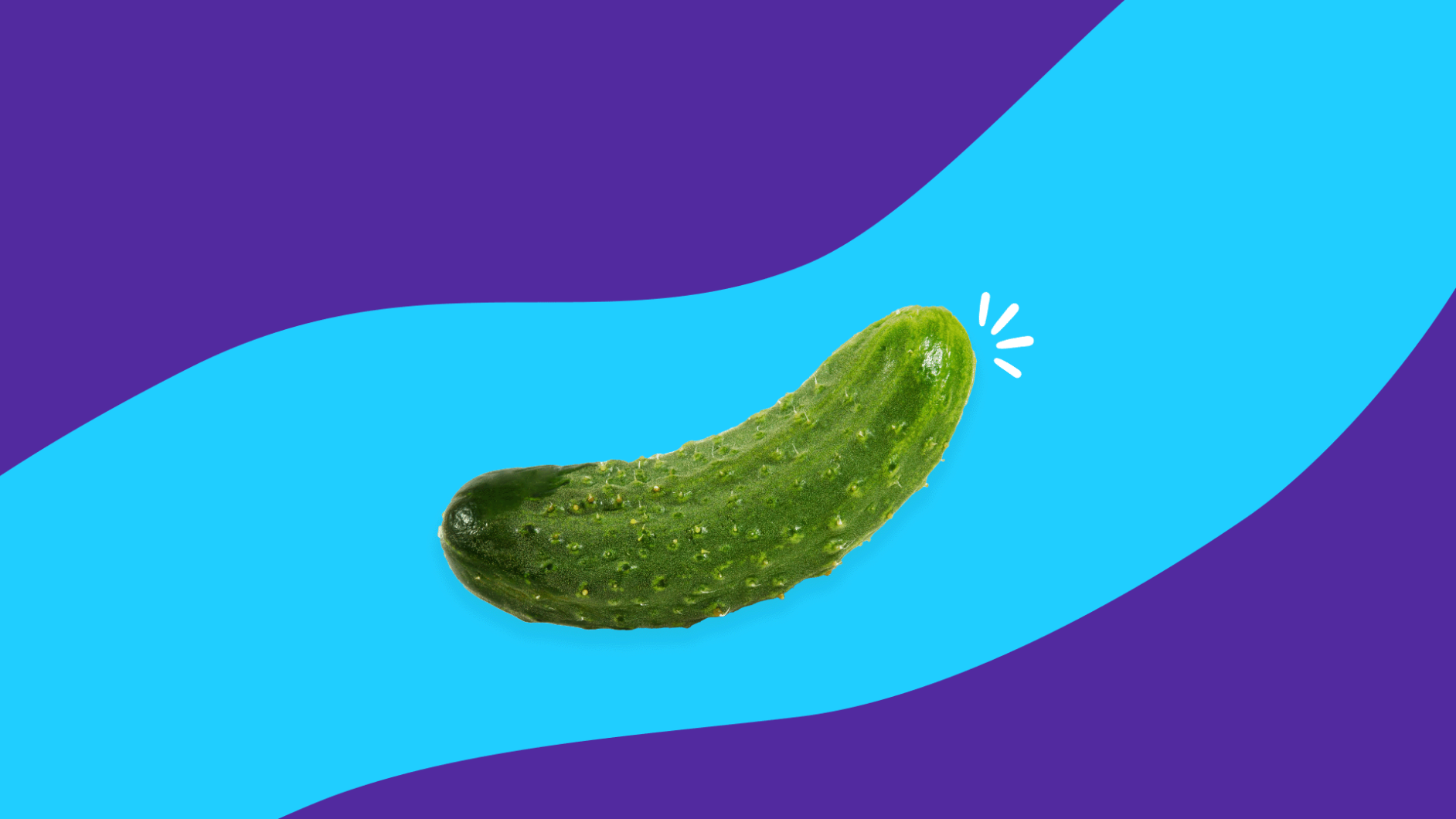People have been preserving foods by the pickling process for centuries. The New York Food Museum reports that people in Mesopotamia may have been pickling foods as early as 2400 BC. And the method is just as popular today as it ever was. How many jars of pickles do you have in your fridge or pantry at this very minute? And do you have different kinds of pickled foods, too? If you have multiples, you’re not alone. True pickle connoisseurs like to have options available to them when the craving strikes.
But pickles aren’t just a great snack or appetizer (or condiment, in some cases). They may also provide some useful health benefits and nutritional value. Learn more about what pickles can (and can’t) do for your well-being.
6 health benefits of pickles
When you hear pickles, you probably think of pickled cucumbers first because they’re so ubiquitous. They’re the garnish on your hamburger or the pickle spears served with your turkey sandwich. But you can pickle just about anything. A pickle is just a food that’s been preserved in vinegar or brine (salty water). You can pickle beets, asparagus, cauliflower, onions, radishes, tomatoes, or any number of other foods. Pickles, of course, are famous for being flavorful in a pungent way—and they can also be healthy. Here are some key potential health benefits:
1. Contain disease-fighting nutrients
Pickles contain important nutrients, such as vitamin K, fiber, and disease-fighting antioxidants that can target free radicals that might cause damage to your cells.
For example, if your pickle of choice is the classic pickled cucumber, you can expect to enjoy a good punch of beta-carotene, an antioxidant that your body converts into vitamin A. This powerful nutrient can strengthen your immune system and help prevent the kind of cell damage that can lead to chronic illnesses like heart disease and even cancer.
2. Promote gut health
Some pickles are fermented—that is, “good” bacteria like lactic acid bacteria are added during the preservation process. Research shows that fermented foods, which also include foods like sauerkraut, kimchi, and kombucha, are a rich source of probiotics. Probiotics help keep your gut healthy. How? They maintain a healthy balance of bacteria in your gut. Research suggests that boosting your probiotic intake may improve digestion and improve a number of health conditions, including inflammatory bowel disease (IBD), irritable bowel syndrome (IBS), constipation, diarrhea, and others.
However, it’s important to note that not all pickles are fermented. For example, kosher dill pickles are fermented, but bread and butter chips are not. “When you’re looking for gut-friendly pickled foods, you have to stay in the refrigerator section of the grocery store and look for the word ‘raw’ or ‘fermented’ on the label,” says Megan Hansen, RDN, a registered dietitian and nutritionist, founder of Metabolism Makeover. “Pickled foods that have been heat-processed will not have the healthy bacteria you’re looking for as the bacteria is killed during processing.”
RELATED: Ways to improve gut health
3. Help with weight loss
Loading up on pickles won’t make your excess pounds magically melt away. However, they are a fat-free snack option that may be a good source of fiber. This combination increases your sense of satiety, which may keep you from overeating. That can help with weight management, explains Scott Keatley, RD, CDN, a registered dietitian nutritionist in private practice in New York City.
“Pickles are a low-calorie food that can add delicious flavor and crunch to a weight-loss diet,” says Bianca Tamburello, RDN, a registered dietitian with Cleveland Kitchen. “Additionally, research shows that the acetic acid from the vinegar in pickle juice and pickles may help you lose weight.”
Their dietary benefits for gut health also aid in weight loss. “Inflammation in the body is one of the leading causes of weight loss resistance, and oftentimes the root of system-wide inflammation is found in the gut,” says Hansen. When your gut is flourishing with good bacteria, it can tamp down inflammation there.”
4. Control blood sugar levels
Research suggests that the acetate in vinegar—a key pickling ingredient—seems to help lower blood sugar levels in people with blood glucose abnormalities. A study in the Journal of Diabetes Research found that vinegar reduced post-meal spikes in blood sugar for people with Type 2 diabetes, although the researchers noted that none of the study participants were taking medication that would affect their glucose or lipid metabolism.
If you’re taking any medication to help manage your diabetes, don’t give it up and turn to pickles. Instead, talk to your healthcare provider or diabetes educator about how pickles might fit into your diet. They might advise you to look for no-sugar-added or low-sodium versions.
RELATED: What are normal blood sugar levels?
5. Decrease muscle cramps
When you return home after a long run or a bike ride, you might have a glass of water and take a shower. However, you may want to add a few sips of pickle juice to your post-workout routine.
According to a study in the journal Medicine & Science in Sports & Exercise, drinking some pickle juice when you’re a little dehydrated may block the onset of electrically induced muscle cramps. The researchers speculated that it works by triggering a reflex in the oropharyngeal area—that is, the area of your soft palate or throat—that reduces some sort of motor neuron activity that causes or contributes to muscle cramping.
6. Improve a hangover
You can also try drinking a small amount of pickle juice to treat a hangover. Some experts also claim that drinking pickle juice may help treat a hangover by restoring lost electrolytes and salts, like potassium and sodium, since alcohol can dehydrate you.
However, there’s not a lot of evidence to back up this claim, so consider embracing other hangover treatments, too. One possible idea: opt for fermented persimmon juice in addition to your pickle juice.
Pickle side effects
With all those benefits, how could you possibly turn down a chance to enjoy some pickles? Despite all the perks, there are some drawbacks, including:
- High sodium content: If you have heart disease, high blood pressure, or any other condition that requires you to limit your sodium intake, you might want to go easy on the pickles. In fact, Jesse Feder, RD, a clinical dietitian at Mount Sinai Medical Center Miami Beach urges moderation or complete abstinence when it comes to pickles for people who have any form of cardiovascular disease. That includes pickle juice—just two tablespoons of pickle juice contains 230 mg of sodium, according to the U.S. Department of Agriculture.
- High levels of vitamin K: People with clotting disorders who take a blood-thinning drug like warfarin may also want to steer clear of pickles because of their high levels of vitamin K. “There’s a risk that it could override the positive effects of the drug,” explains Laura Purdy, MD, a board-certified family medicine physician. “Check with your healthcare provider if you are taking this medication and considering eating pickles.”
- High histamine content: Pickles contain a compound called histamine that can cause allergic and inflammatory reactions in some people.
- Gastrointestinal upset: “The caveat for eating pickled foods is that in restoring a balance of gut bacteria, it may cause some gas and bloating, not to mention the added retention of water from the high amount of sodium in most pickled foods,” says Keatley. The high vinegar content may also aggravate heartburn or acid reflux.
RELATED: The best low-histamine diet
Bottom line: What do pickles do for the body?
Ultimately, pickles can be part of a healthy diet for most people. They may help you maintain a healthy weight, provide a little fiber, support hydration, ward off muscle cramps, and in some cases, keep your gut microbiome healthy and balanced. They even seem to be able to help people with Type 2 diabetes avoid big spikes in their blood sugar levels after meals.
But as with most things, it’s all about moderation. “Pickles, in moderation, can be a healthy source of minerals, vitamins, and fiber,” says Feder. “Fermented pickles can have the added benefit of probiotics.”
If you’re eating a healthy diet with lots of fruits and veggies, whole grains, and lean protein, a pickle might add a little extra tang to your mealtime–and maybe a few other benefits, too.











